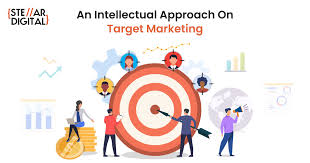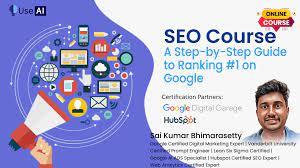Innovative Communication Strategies: Paving the Way for Success
In today’s fast-paced and ever-evolving business landscape, effective communication has become more crucial than ever. It is no longer enough to rely on traditional methods alone; businesses must embrace innovative communication strategies to stay ahead of the curve and connect with their target audience in meaningful ways.
So, what exactly are innovative communication strategies? These are fresh approaches that leverage emerging technologies, creative thinking, and a deep understanding of human psychology to engage and resonate with audiences. They break free from conventional norms and explore new avenues for reaching customers, employees, stakeholders, and the wider community.
One key aspect of innovative communication strategies is personalization. With advancements in data analytics and customer profiling, businesses can now create tailored messages that speak directly to individual needs and preferences. By understanding their audience on a granular level, companies can deliver highly targeted content through various channels such as social media platforms, email marketing campaigns, or personalized website experiences. This level of personalization enhances engagement and builds stronger connections with customers.
Another innovative approach is the use of interactive content. In an era where attention spans are shorter than ever, static content often fails to capture interest. By incorporating interactive elements like quizzes, polls, augmented reality experiences, or virtual reality tours into their communication efforts, businesses can captivate their audience’s attention and create memorable experiences. These interactive strategies not only entertain but also educate and build brand loyalty.
Furthermore, leveraging social media platforms goes beyond just posting updates or sharing content. Innovative communication strategies involve harnessing the power of social media algorithms to amplify reach and engagement. By creating shareable content that sparks conversations or encourages user-generated content (UGC), businesses can tap into the vast networks of their followers and extend their reach organically.
Innovative communication strategies also embrace storytelling as a powerful tool for connecting emotionally with audiences. Rather than bombarding people with facts and figures, businesses are now focusing on crafting compelling narratives that resonate with their target market. By humanizing their brand and sharing authentic stories, companies can build trust, foster brand loyalty, and differentiate themselves from competitors.
Moreover, emerging technologies such as chatbots and artificial intelligence (AI) are transforming the way businesses communicate with customers. Chatbots provide instant support and assistance, enhancing customer experience and reducing response times. AI-powered analytics enable businesses to gain valuable insights into customer behavior, preferences, and sentiment, allowing for more targeted communication strategies.
Innovative communication strategies also embrace the power of influencers. Collaborating with influential individuals in a particular niche or industry can help businesses tap into new audiences and build credibility. By partnering with relevant influencers who align with their brand values, businesses can reach a wider audience through authentic recommendations and endorsements.
In conclusion, innovative communication strategies are essential for businesses aiming to thrive in today’s dynamic marketplace. By embracing personalization, interactive content, social media algorithms, storytelling techniques, emerging technologies like chatbots and AI, as well as influencer collaborations, companies can create meaningful connections that drive engagement and deliver results. The key is to continuously adapt to new trends and technologies while keeping the audience at the heart of every communication effort. With innovation as a guiding principle, businesses can pave the way for success in the ever-evolving world of communication.
5 Top Tips for Innovative Communication Strategies: Reaching a Wider Audience through Social Media, Engaging Customers with Interactive Content, Enhancing Communication with Visuals, Amplifying Your Brand through Influencer Marketing, and Standing Out with Creative Use of Emerging Technologies
- Utilise social media platforms to reach a wider audience.
- Engage with customers through interactive content such as polls and surveys.
- Make use of visual content such as videos, infographics and images to effectively communicate your message.
- Leverage influencer marketing to spread the word about your brand or product quickly and efficiently.
- Take advantage of emerging technologies such as augmented reality and virtual reality for creative communication strategies that will help you stand out from the crowd.
In today’s digital age, social media platforms have become powerful tools for businesses to connect with their target audience in unprecedented ways. With billions of active users across various platforms, harnessing the potential of social media is a vital component of any innovative communication strategy.
One of the key advantages of utilising social media platforms is the ability to reach a wider audience. Unlike traditional marketing channels that have limitations in terms of reach and targeting, social media offers businesses the opportunity to extend their brand’s visibility far beyond their immediate network.
By creating engaging and shareable content, businesses can tap into the vast networks of their followers and encourage them to spread the word. When users engage with or share content, it reaches not only their connections but also potentially those connections’ connections, leading to exponential growth in reach.
Moreover, social media platforms provide valuable insights into audience demographics and interests. Through analytics tools, businesses can gain a deep understanding of who their followers are and what content resonates with them. This data allows for more targeted communication strategies that are tailored to specific segments of the audience.
Additionally, social media platforms offer various advertising options that enable businesses to amplify their reach even further. By leveraging targeted advertising features such as demographic targeting, interest-based targeting, or lookalike audiences, companies can ensure that their content reaches individuals who are most likely to be interested in their products or services.
Furthermore, social media platforms foster direct engagement with the audience through comments, likes, shares, and direct messages. This two-way communication allows businesses to build relationships with customers by responding promptly to inquiries or feedback. It creates a sense of authenticity and trust which can lead to increased brand loyalty and advocacy.
To effectively utilise social media platforms for reaching a wider audience, it is essential for businesses to develop a well-defined strategy. This involves identifying which platforms are most relevant to their target market and aligning content with the unique characteristics and expectations of each platform. Consistency in branding, tone, and messaging across all social media channels is also crucial for building a cohesive brand presence.
In conclusion, social media platforms offer businesses an unparalleled opportunity to reach a wider audience and connect with them on a deeper level. By creating engaging content, leveraging analytics insights, utilising targeted advertising options, and fostering direct engagement, companies can expand their brand’s visibility and build meaningful relationships with their target audience. Embracing social media as part of an innovative communication strategy is no longer optional but rather a necessity for businesses looking to thrive in the digital era.
Engage with customers through interactive content such as polls and surveys.
Engaging with Customers: Unleashing the Power of Interactive Content
In today’s digital age, businesses are constantly seeking innovative ways to connect with their customers and create meaningful interactions. One powerful strategy that has gained momentum is engaging with customers through interactive content, such as polls and surveys. This approach not only captures attention but also provides valuable insights and fosters a sense of involvement.
Interactive content, such as polls and surveys, offers a refreshing departure from passive consumption. It invites customers to actively participate in the conversation, making them feel heard and valued. By incorporating these elements into communication strategies, businesses can ignite curiosity and encourage engagement.
Polls are an effective way to gather quick feedback or opinions from customers. They can be used to gauge preferences, gather insights on new product ideas, or simply spark conversations around relevant topics. With just a few clicks, customers can share their thoughts and contribute to shaping the brand’s direction.
Surveys take engagement a step further by allowing businesses to delve deeper into customer perceptions and experiences. By designing well-crafted surveys that address specific areas of interest, companies can gain valuable insights into customer satisfaction levels or identify areas for improvement. These insights serve as a compass for decision-making, helping businesses align their offerings with customer needs.
The beauty of interactive content lies in its ability to generate real-time responses. Customers appreciate the immediate gratification of seeing results or comparing their opinions with others’. This instant feedback loop not only keeps customers engaged but also creates a sense of community around the brand.
Moreover, interactive content acts as an opportunity for businesses to showcase transparency and authenticity. By openly seeking customer opinions through polls and surveys, companies demonstrate their commitment to listening and adapting based on customer feedback. This builds trust and strengthens the relationship between the brand and its audience.
In addition to fostering engagement, interactive content provides businesses with valuable data that can inform future strategies. The responses gathered from polls and surveys offer insights into customer preferences, pain points, and emerging trends. Armed with this knowledge, businesses can refine their offerings, tailor marketing messages, and deliver a more personalized customer experience.
To maximize the impact of interactive content, it is important to choose the right platforms and channels. Social media platforms provide an ideal space for sharing polls and surveys due to their wide reach and interactive features. By leveraging these platforms effectively, businesses can tap into their existing audience base and attract new customers through engaging content.
In conclusion, engaging with customers through interactive content such as polls and surveys is a powerful strategy that fosters meaningful connections. It empowers customers by giving them a voice while providing businesses with valuable insights for growth. By embracing this innovative communication approach, businesses can elevate their brand’s visibility, enhance customer satisfaction, and foster long-lasting relationships in today’s dynamic digital landscape.
Make use of visual content such as videos, infographics and images to effectively communicate your message.
Harnessing the Power of Visual Content in Innovative Communication Strategies
In the digital age, where attention spans are shorter than ever, capturing and retaining audience attention has become a monumental challenge for businesses. This is where the use of visual content comes into play as an integral part of innovative communication strategies.
Visual content, such as videos, infographics, and images, has the unique ability to convey messages quickly and effectively. It taps into the power of visual storytelling, engaging audiences on a deeper level and leaving a lasting impact. Here’s why integrating visual content into your communication strategy is crucial for success.
Firstly, videos have emerged as one of the most powerful tools for communication. With platforms like YouTube and social media channels prioritizing video content, businesses can leverage this medium to tell their stories in a captivating way. Videos allow for dynamic storytelling by combining visuals, audio, and motion to evoke emotions and deliver messages with clarity. Whether it’s explainer videos, product demonstrations, or customer testimonials – videos have the potential to engage viewers and increase brand awareness.
Infographics are another valuable form of visual content that presents complex information in a visually appealing manner. By condensing data or ideas into bite-sized visuals with clear hierarchies and eye-catching designs, infographics make it easier for audiences to understand and retain information. They are particularly effective when sharing statistics or presenting step-by-step processes. Infographics can be shared on social media platforms or incorporated into presentations or blog posts to enhance engagement.
Images hold immense power in capturing attention instantly. They say a picture is worth a thousand words – well-chosen images can communicate messages swiftly without overwhelming viewers with lengthy text. Images evoke emotions, create connections, and make content more shareable on social media platforms. From photographs to illustrations or even memes – incorporating relevant images that align with your brand voice can help you stand out from the crowd.
The use of visual content also enhances audience engagement by catering to different learning styles. While some individuals prefer reading text, others respond better to visual stimuli. By incorporating visual content alongside written communication, businesses can cater to a broader audience and ensure their message reaches everyone effectively.
Moreover, visual content tends to be more memorable than plain text. Studies have shown that people remember only 10% of information they hear after three days, but when combined with relevant visuals, they retain 65% of the information. By leveraging this aspect of visual content, businesses can increase brand recall and leave a lasting impression on their target audience.
In conclusion, integrating visual content into your communication strategy is essential for effectively conveying messages in today’s fast-paced digital landscape. Videos, infographics, and images offer powerful ways to engage and connect with your audience on a deeper level. By harnessing the power of visual storytelling, businesses can make their messages more impactful, memorable, and shareable. So don’t underestimate the influence of visual content – embrace it as a key element in your innovative communication strategies and watch as your message resonates with your audience like never before.
Leverage influencer marketing to spread the word about your brand or product quickly and efficiently.
Leverage Influencer Marketing: Amplify Your Brand’s Reach with Ease
In today’s digital age, where social media dominates our daily lives, influencer marketing has emerged as a powerful tool for businesses to spread the word about their brand or product quickly and efficiently. By partnering with influential individuals who have a dedicated following, businesses can tap into their reach and credibility to amplify their message and connect with a wider audience.
So, what exactly is influencer marketing? It involves collaborating with popular figures in specific niches or industries who have built a loyal following on platforms like Instagram, YouTube, or TikTok. These influencers have established themselves as trusted voices in their respective fields and hold the power to sway consumer opinions and purchasing decisions.
One of the key benefits of leveraging influencer marketing is the ability to reach a highly targeted audience. Influencers often have a niche focus, whether it’s fashion, fitness, beauty, technology, or travel. By carefully selecting influencers whose interests align with your brand or product, you can ensure that your message reaches people who are genuinely interested in what you offer. This targeted approach increases the chances of converting followers into customers.
In addition to reaching a specific audience segment, influencer marketing allows for authentic storytelling. Influencers are skilled at creating engaging content that resonates with their followers. By collaborating with them, businesses can tap into this storytelling expertise and benefit from the genuine enthusiasm influencers bring when promoting products or services. This authenticity helps build trust and credibility around your brand.
Another advantage of influencer marketing is its ability to generate quick results. Unlike traditional advertising methods that may take time to gain traction, influencer campaigns can create an immediate impact. With just one well-placed endorsement from an influential figure, your brand or product can be exposed to thousands or even millions of potential customers overnight. This speed and efficiency make influencer marketing an attractive option for businesses looking for rapid growth.
Moreover, influencer marketing provides an opportunity for businesses to leverage user-generated content (UGC). Influencers often encourage their followers to engage with their posts by sharing their experiences or opinions. This UGC can be a valuable asset for businesses, as it showcases real-life examples of people using and endorsing their products. By reposting or featuring this content, businesses can further amplify their reach and build social proof.
It is important to note that successful influencer marketing campaigns require careful planning and consideration. Businesses should research and select influencers who align with their brand values and target audience. It’s also essential to establish clear goals and expectations, provide influencers with the necessary resources, and maintain open communication throughout the partnership.
In conclusion, leveraging influencer marketing is a powerful strategy for spreading the word about your brand or product quickly and efficiently. By collaborating with influential figures who have established trust and credibility among their followers, businesses can tap into targeted audiences, benefit from authentic storytelling, generate quick results, and leverage user-generated content. With the right approach and partnerships, influencer marketing can be a game-changer in amplifying your brand’s reach in today’s digital landscape.
Take advantage of emerging technologies such as augmented reality and virtual reality for creative communication strategies that will help you stand out from the crowd.
Take Your Communication to New Dimensions with Augmented and Virtual Reality
In the realm of innovative communication strategies, emerging technologies like augmented reality (AR) and virtual reality (VR) have emerged as powerful tools to captivate audiences and create immersive experiences. These cutting-edge technologies offer businesses the opportunity to stand out from the crowd and engage with their target audience in unique and memorable ways.
Augmented reality blends the virtual world with the real world by overlaying digital content onto physical environments. By harnessing AR, businesses can create interactive experiences that allow users to explore products, visualize concepts, or even try out virtual simulations. For example, a furniture retailer could use AR to enable customers to see how a specific piece of furniture would look in their own home before making a purchase decision. This level of interactivity not only enhances engagement but also helps customers make more informed choices.
On the other hand, virtual reality offers a fully immersive experience by transporting users into a completely digital environment. With VR, businesses can create simulated scenarios that allow users to explore new places, test products or services, or even provide training in a realistic yet controlled environment. For instance, an automotive company could use VR to let potential customers experience a virtual test drive of their latest car model. This enables customers to get a feel for the vehicle’s features and performance without physically being present at a dealership.
By incorporating augmented and virtual reality into their communication strategies, businesses can break through traditional boundaries and deliver impactful messages that leave a lasting impression on their audience. These technologies have the power to engage multiple senses simultaneously, creating an immersive experience that is hard to forget.
Moreover, AR and VR experiences often generate excitement and buzz among consumers due to their novelty factor. By leveraging this curiosity and interest surrounding these technologies, businesses can generate increased brand awareness and capture attention in crowded markets.
However, it’s important for businesses to approach AR and VR strategically rather than using them simply for the sake of novelty. It is crucial to align these technologies with the brand’s overall communication objectives and ensure that they enhance the user experience rather than becoming gimmicks. By carefully integrating AR and VR into broader communication campaigns, businesses can create cohesive and impactful experiences that resonate with their audience.
In conclusion, taking advantage of emerging technologies such as augmented reality and virtual reality opens up a world of creative possibilities for innovative communication strategies. By incorporating AR and VR into their campaigns, businesses can create immersive experiences that engage audiences on a deeper level. Whether it’s visualizing products, providing virtual simulations, or offering unique experiences, these technologies have the potential to help businesses stand out from the crowd and leave a lasting impression in the minds of their customers.








